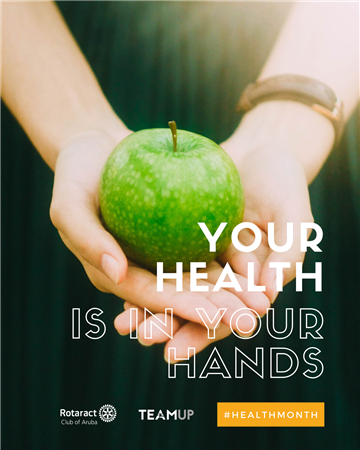What you need to know about Diabetes and living a healthy lifestyle:

What about Diabetes?
According to the International Diabetes Federation, in 2019 about 463 million adults have been diagnosed with Diabetes - in 25 years this is projected to rise to 700 million adults worldwide. There are many types of Diabetes, but worldwide Type 2 is most common, with the proportion ever increasing. If untreated, Diabetes can have severe consequences and c
In Aruba, 16% of the population has been diagnosed with the disease, and 90% of these people have Type 2 diabetes. It is estimated that 50% of the people who have diabetes on the island have not been diagnosed as of yet.

What are the symptoms of Diabetes?
Typically the most prominent symptoms are excessive urination and extreme thirst,
and these symptoms might appear suddenly and very strongly.
Other symptoms can also include weight loss but with no
loss of appetite, weakness, fatigue, confusion, nausea and vomiting.

How do you find out if you have Diabetes?
Diabetes is diagnosed by a combination of symptoms, a person's age and blood
test, such as the Fasting plasma glucose (FPG) test, Oral glucose tolerance test (OGTT),
Random blood glucose test, and the Hemoglobin A1C (glycohemoglobin) test.
The best way to find out is to visit your general practitioner (huisarts) and ask for a test,
especially if you have risk factors such as family history, and obesity.
These tests are covered by AZV.
What happens if you don’t treat Diabetes?
If Diabetes goes untreated, it can cause long term damage in different ways.
Diabetics can experience eye damage (retinopathy), nerve damage (neuropathy), and kidney disease (nephropathy).
Many people with diabetes in advanced stages also suffer from foot problems such as sores,
blisters, and numbness, with extreme cases leading to amputation. People with type 1 diabetes are more likely to have heart disease, strokes and problems related to poor circulation.
What you need to know about Hypoglycaemia?
Diabetics can also experience Hypoglycaemia, a condition where the blood sugar levels drop dramatically. This usually happens when a person goes a long time without eating. In this state, people can feel weakness, dizziness, trembling, sudden sweating, headache, confusion, irritability, blurry or double vision. More i importantly, Hypoglycemia can lead to coma if it is not corrected by eating or drinking carbohydrates.

What to eat when you have Diabetes?
Being diagnosed with Diabetes doesn’t mean you can’t enjoy food anymore, it’s all about finding balance and delicious recipes. So we did some research and found a few recipes to include in your daily meal planning
You can start the day with easy and healthy breakfast options such as egg-white omelette, oatmeal, and non-fat yogurt
To maintain your blood sugar levels, it’s recommended to have healthy snacks throughout the day. Some healthy treats are berries, unsalted nuts, low fat cheese, and even low-salt popcorn.
Look forward to lunch time and delicious dinners with options like whole wheat sandwiches, whole grain pasta, hearty soups, veggie and chicken stir fry & chicken, and colorful salads.
In the end, our tip is to mix and match these ideas as you go and always add your special touch to make food enjoyable. Remember, Diabetes can be managed and you are not alone in this journey. Connect with others, and together you can lead a healthy lifestyle.
